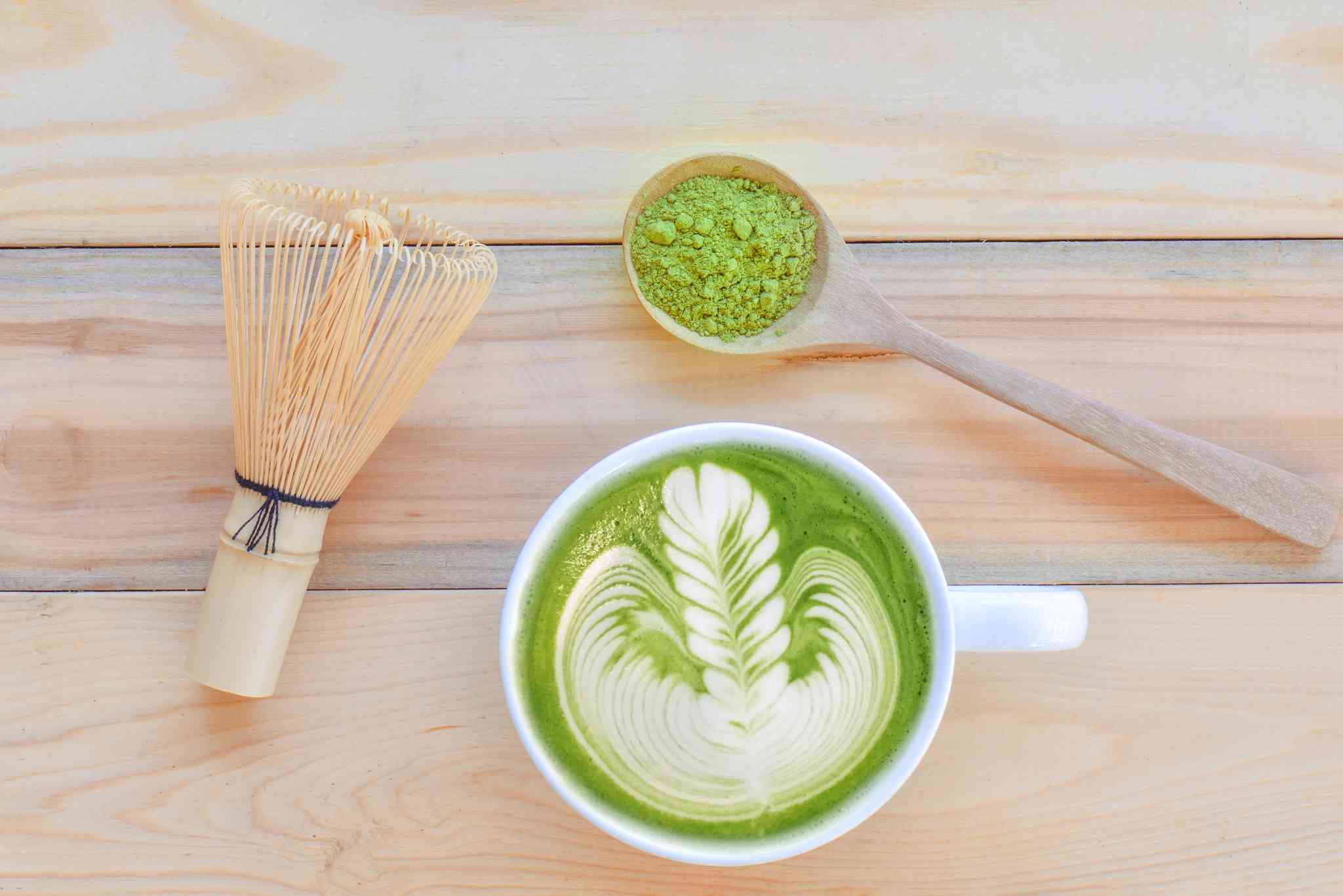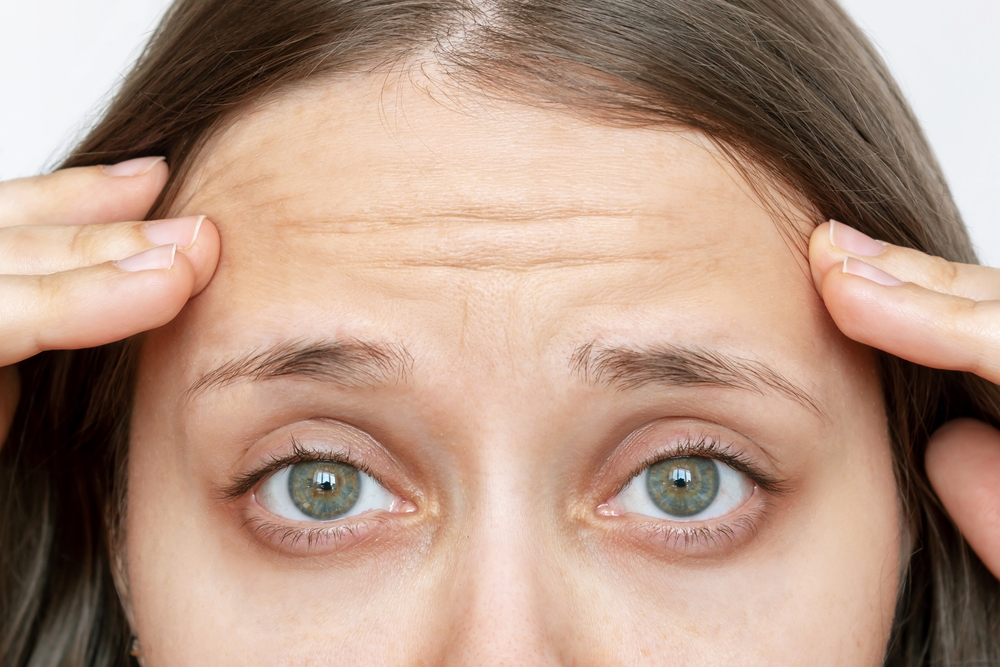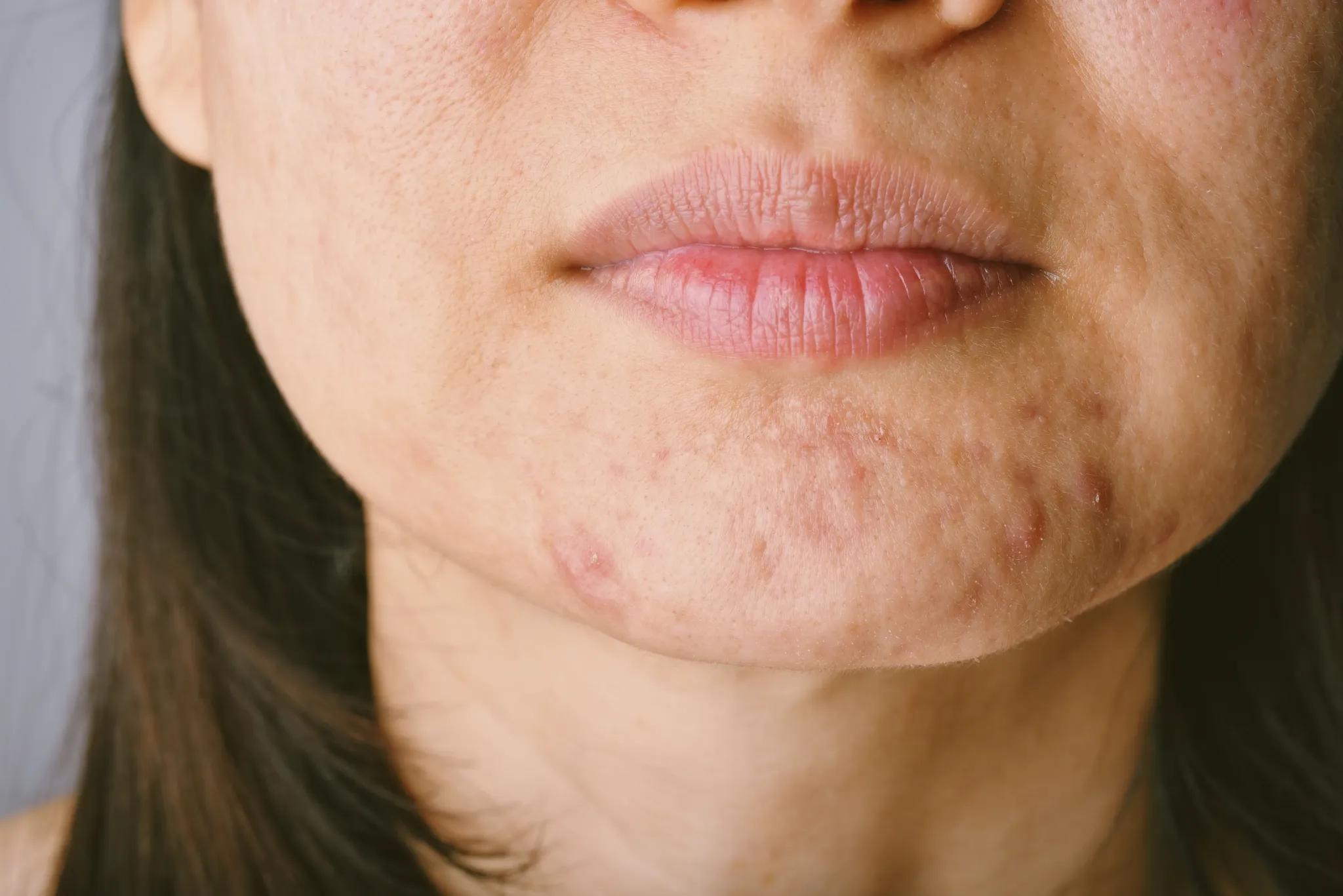
Everything You Need to Know About IPL Laser Treatment
In the evolving world of advanced skincare, IPL laser treatment has become one of the most sought-after solutions for those looking to improve skin clarity,
Our unique approach enables us to look beneath the surface of the skin and simulate your results prior to treatment. Learn more >
Results simulator now available. Learn more >

Does matcha have caffeine? If you’ve been wondering about the caffeine content in this popular green tea powder, you’re not alone. Matcha has gained attention as a balanced energy booster and a healthier coffee alternative.
This article explores the caffeine content in matcha powder, its unique benefits, and how it compares to coffee. Whether you’re considering a switch from coffee or just curious, discover everything you need to know about matcha caffeine and its effects.
The amount of caffeine in matcha powder depends on the quality of the tea leaves, the quantity used, and the brewing process. Matcha caffeine content generally ranges between 19–44 mg per gram. A typical serving, usually around 2–4 grams (½–1 teaspoon), can provide 38–176 mg of caffeine, depending on the strength of the matcha and how it’s prepared.
For a quick comparison:
Because matcha is consumed in its powdered form, it generally provides a more concentrated caffeine dose than regular green tea. This makes it an ideal choice for those looking to balance energy levels without the jittery effects of coffee.

If you’re trying to decide between matcha tea and caffeine from coffee, understanding the differences in caffeine release can help you make an informed choice.
Coffee is a staple for those seeking a sharp burst of energy. A standard 8-ounce cup of coffee typically contains around 95 mg of caffeine, though this can vary based on the type of bean, roast, and brewing method. However, this quick spike in energy is often followed by a crash, leaving some feeling fatigued.
When assessing how much caffeine in matcha green tea versus coffee, matcha offers a unique advantage. While a standard matcha serving provides around 70 mg of caffeine, it combines this with L-theanine for a smoother and more sustained energy boost. This slower caffeine release makes matcha a preferred choice for individuals seeking sustained energy without the abrupt highs and lows associated with coffee.
One of the main reasons matcha caffeine content provides a calm yet focused boost lies in its unique combination with L-theanine, an amino acid found in tea leaves.
L-theanine is known for promoting relaxation and focus without drowsiness. In matcha tea, it works alongside caffeine to smooth out the typical “rush” associated with caffeinated beverages. This results in a slower release of caffeine, offering a stable, extended energy boost.
It’s no wonder that many people turn to matcha for tasks requiring long periods of focus, such as studying, work, or creative projects.
Thanks to L-theanine, matcha drinkers often report a state of “calm alertness.” This means that while caffeine increases energy levels, L-theanine keeps you relaxed and clear-headed, making matcha a fantastic option for people looking to reduce coffee dependence while staying productive.

Although both matcha and green tea come from the same plant, matcha powder typically has a higher caffeine content due to its unique production process.
This caffeine concentration makes matcha caffeine content generally higher than most green tea with matcha caffeine, offering a stronger, longer-lasting energy boost.
Beyond just an energy booster, matcha powder is packed with beneficial compounds that contribute to its health benefits. Here’s how matcha tea and caffeine can positively impact your health:
Matcha is loaded with antioxidants, particularly catechins like EGCG (epigallocatechin gallate). These powerful antioxidants combat free radicals, helping to reduce cell damage and inflammation.
Regular consumption of matcha powder may support heart health, reduce cancer risk, and promote general wellness.
Studies suggest that matcha caffeine content and catechins can work together to boost thermogenesis—the body’s ability to burn calories. This increase in calorie-burning capacity, paired with matcha’s potential to enhance fat oxidation, makes it popular among those focused on weight loss and metabolism support.
With its L-theanine content, matcha offers a calm, focused energy, making it perfect for professionals, students, and creatives who want to maintain productivity without caffeine crashes.
Because matcha is grown in the shade, it’s rich in chlorophyll, a compound believed to help the body detoxify. Chlorophyll may aid in the removal of heavy metals and toxins from the bloodstream, offering gentle support to your body’s natural cleansing processes.
In addition to enjoying matcha for its wellness benefits, you can further rejuvenate your skin with advanced treatments like BroadBand Light (BBL) therapy at Cosmetic Clinics. BBL treatments target sun damage, pigmentation, and signs of aging, leaving your skin visibly clearer and younger-looking.
While matcha tea and caffeine are known for offering a smooth energy boost, coffee also provides substantial health benefits worth noting.
Coffee is rich in polyphenols, a type of antioxidant that helps protect the body from oxidative stress. These antioxidants can reduce the risk of several chronic conditions, including heart disease and diabetes.
Coffee is celebrated for its ability to boost cognitive function, providing a sharp, instant boost in alertness and focus. It’s a popular choice for those needing quick mental clarity.
Research suggests that coffee might lower the risk of neurodegenerative diseases like Alzheimer’s and Parkinson’s, potentially due to its high antioxidant content.
For many, coffee provides an instant mood lift due to its caffeine content. This can improve alertness and reduce fatigue, making it a go-to option for busy mornings.
When selecting matcha powder, understanding the types and quality levels can help you find one that suits your caffeine preferences. The caffeine content in matcha can vary significantly depending on the type and preparation. Here’s what to consider:
Organic matcha is cultivated without the use of chemical pesticides or artificial fertilisers, ensuring a purer, cleaner product. Choosing organic matcha is ideal for those prioritising natural ingredients, as it reduces the risk of contaminants in your daily cup.
While opting for organic doesn’t directly impact caffeine levels, it provides peace of mind and supports sustainable farming practices, making it a popular choice for health-conscious matcha drinkers.
The highest quality matcha comes from shade-grown tea plants, a traditional process that enhances the production of caffeine and L-theanine.
This shaded environment increases chlorophyll levels, giving matcha its vibrant green colour and helping to create the balanced energy boost its known for. Shade-grown matcha offers a calm alertness, perfect for those seeking a focused energy lift.
The traditional stone-ground method is essential to producing quality matcha. This slow, careful grinding technique preserves matcha’s natural nutrients, ensuring a smooth, flavourful taste and an even caffeine experience.
Considering the benefits of matcha powder and its unique caffeine content, there are various ways to integrate it into your daily life.
Mix a teaspoon of matcha powder with your favourite milk to create a creamy matcha latte. This is a great way to enjoy matcha caffeine with a satisfying, smooth taste.
Add matcha powder to smoothies for an extra boost of antioxidants and a touch of caffeine. Pair it with fruits like bananas or berries for a nutrient-rich drink.
Matcha’s antioxidants are sometimes used in skin treatment products for their potential anti-inflammatory effects. Incorporating matcha in your skincare routine can help soothe the skin and reduce redness.
Due to its metabolism-boosting properties, matcha can be an excellent addition for those focusing on weight loss. Try drinking matcha before your workout or as a morning beverage to support your weight management goals.
For long-lasting skin benefits, complement your matcha routine with targeted treatments. Cosmetic Clinics offers BBL therapy to enhance skin clarity and tone, supporting your overall glow. Learn more about their BBL treatments.
Matcha’s energy-boosting effects go beyond caffeine and L-theanine. Scientific studies highlight how the combination of these compounds creates a synergistic effect, enhancing both physical and mental performance.
Caffeine in matcha stimulates the central nervous system, increasing alertness and reducing the perception of fatigue. Unlike coffee, the caffeine in matcha is absorbed gradually, preventing spikes and crashes. Meanwhile, L-theanine slows caffeine absorption, ensuring steady energy release over several hours. This makes matcha an excellent pre-workout drink or a mid-day pick-me-up.
Research shows that matcha’s unique blend of caffeine and L-theanine enhances cognitive function, improving memory, attention, and reaction time. This combination supports both mental clarity and relaxation, making it ideal for tasks requiring sustained focus, such as studying or brainstorming creative ideas.
As matcha gains global popularity, its environmental and ethical considerations have come to light. Choosing sustainably grown and ethically sourced matcha can make a significant difference in supporting both the planet and farming communities.
High-quality matcha is typically shade-grown, a method that enhances chlorophyll production while conserving soil nutrients. Many premium matcha brands prioritize organic farming, avoiding harmful pesticides and synthetic fertilizers that can damage ecosystems. Opting for organic matcha helps protect the environment while ensuring a pure, chemical-free product.
Ethically sourced matcha supports tea farmers with fair wages and better working conditions. Purchasing fair trade-certified matcha ensures that small-scale farmers and their communities benefit directly from the industry’s growth. Look for certifications or transparency statements from matcha brands to ensure your purchase aligns with ethical standards.
By choosing environmentally conscious and ethically sourced matcha, you can enjoy its benefits while contributing to sustainable agriculture and social responsibility.
Does matcha have caffeine? Yes, it does—but its unique combination with L-theanine provides a calm, focused energy boost that sets it apart from coffee. Along with antioxidants, metabolism support, and skin health benefits, matcha offers a holistic approach to wellness.
Curious about how your lifestyle affects your skin? At Cosmetic Clinics, we believe in promoting radiant skin through balanced living. Explore our advanced skin treatments to achieve your glow and confidence.

In the evolving world of advanced skincare, IPL laser treatment has become one of the most sought-after solutions for those looking to improve skin clarity,

Forehead wrinkles are among the first visible signs of ageing and often appear earlier than expected. These lines result from repeated facial expressions, environmental exposure,

Struggling with chin breakouts that just won’t disappear? You’re not alone. Acne in this area tends to be stubborn and persistent, often showing up as
"*" indicates required fields
Excellent, we are always excited to meet a new face or to welcome back a familiar one. Contact us in the way that best works for you!
© 2022 Bondi Junction Cosmetic Clinic. All rights reserved.
Enter your details and we will contact you within 24 hrs.
"*" indicates required fields